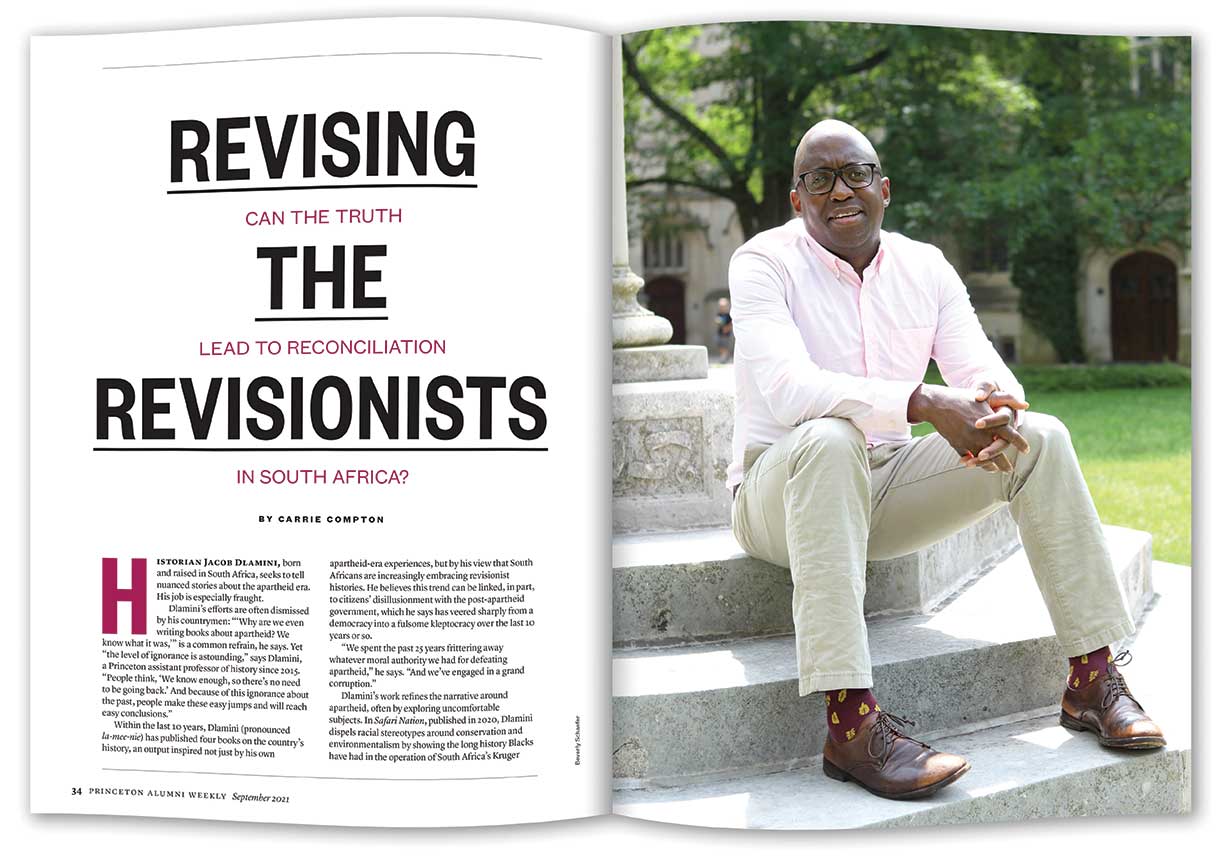From the Editor: A Proofreader’s Dilemma
If you read the story in PAW’s September issue about history professor Jacob Dlamini, you might have noticed a curious editorial convention: When we used the word “Black” to describe a community or someone’s race, we used uppercase — but we lowercased “white.” In a letter to the editor published in November, Bruce C. Johnson ’74 asked why: “I would have thought rules of grammatical consistency and considerations of racial equality would have indicated treating the two terms the same and capitalizing both or neither. Is there a grammatical rule at work here of which I was unaware?”
It’s a good question. We responded, explaining: “On matters of capitalization, PAW follows the Associated Press Stylebook, which uses the capitalized term Black when the word is used as an adjective in a racial, ethnic, or cultural sense. AP style does not capitalize white.”
That was an accurate reply, but not a sufficient one.
The PAW staff has debated the question of capitalization before, and not just in relation to race. In 2019, we published an article about Princeton’s classes in American Sign Language and specified that the instructor was Deaf, capital “D.” But later in the story we referred to students taking the course because they wanted to work with deaf children, lowercase “d.” The uppercase letter, we wrote, referred “to the culture and community” — a community that shared a language, ASL, not simply the audiological condition of not hearing.
The conventions of capitalization seemed especially complicated in our article about Professor Dlamini, who grew up in South Africa and focuses his scholarship on that country. If the uppercase “B” is meant to signify shared culture and identity, particularly in the United States, should it be applied to someone from another country with different cultural traditions?
Editing that article, I could not decide. I first put “black” in lowercase throughout the story, but reconsidered when colleagues marked up the page, correctly, with: “UC!” — meaning uppercase — and “Not AP style!” I considered using the capital “W” along with the capital “B,” but that seemed wrong, too: White people share privilege because of skin color — but is that enough to signify greater kinship? I write as someone just one generation removed from cousins lost and presumed killed during the Holocaust, something that’s been on my mind as anti-Semitism has increased. My relatives’ skin was white, but the Nazis did not see them as White, uppercase.
What to do? The obvious thing. I reached out to one of the brilliant people who populate this campus: Professor Carolyn Rouse, chair of the anthropology department, who agreed to write an essay on the topic. PAW’s article about Professor Dlamini ran with the capital “B” and lowercase “w,” as AP style requires — when you are facing an imminent deadline, it helps to fall back upon the rules laid out in the pages of a stylebook. But in her essay, found on page 34, Rouse makes a compelling argument for thinking about the issue differently. Sometimes, perhaps, the stylebook rules are not enough. We welcome your thoughts. — Marilyn H. Marks *86
In July, PAW’s board chair, Marc Fisher ’80, wrote about then-ongoing discussions about PAW’s future. Please his update here.










1 Response
Jacques Read ’57
4 Years AgoInterpretations of Color
Some of my happiest moments have been discussing grammar with my daughter-in-law, who teaches high school English. I must disagree with Ms. Marks and the Associated Press in part (From the Editor, December issue). Clearly, if you are deaf it is a state, much as being Albanian or Methodist, and must be capitalized. On the other hand, I have never met either an African or an African American who was actually black, and I don’t recall ever meeting an albino, so I’ve never met anyone who is actually white. So when “white” or “black” show up in prose as describing a human being it is a vast overstatement, much as calling friend who has done something unusual as being “insane,” or a friend who is able to solve problems as being “another Einstein.” So I opine that “black” and “white” should not be capitalized, but should appear in quotes, indicating that the author is not being serious about the color of the subject. This would be most appropriate with people who are at most tan or beige but identify with African American culture.